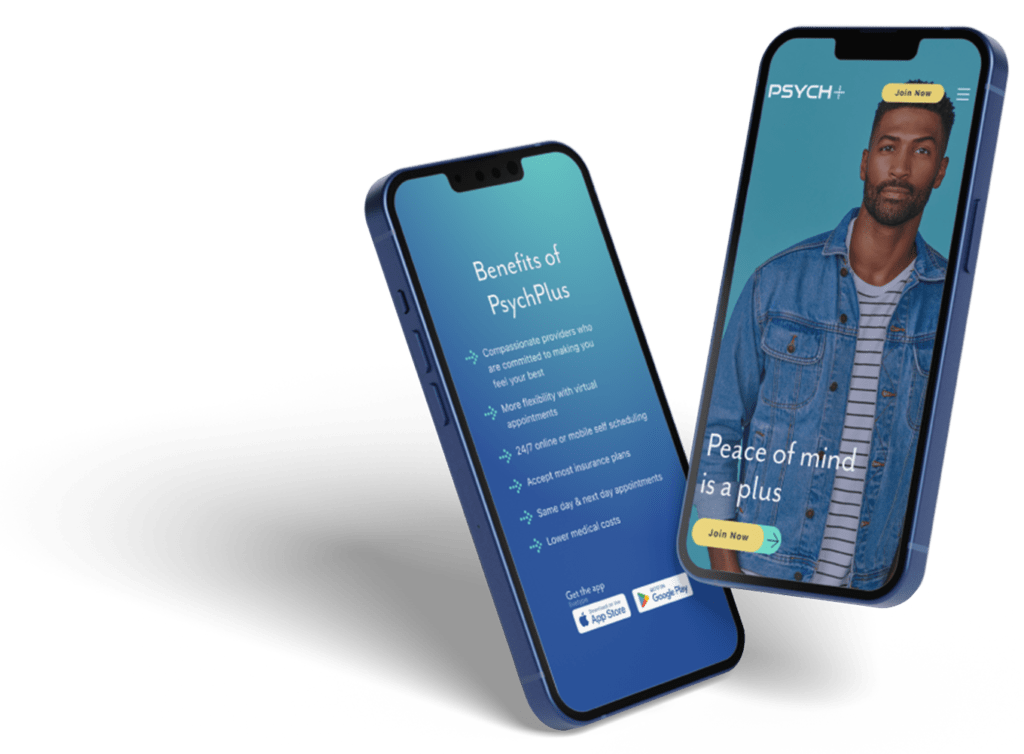PTSD Psychiatrist in River Oaks
Trained in the latest research and techniques, the psychiatrists at PsychPlus possess a profound understanding of the biological, psychological, as well as social factors contributing to the development and persistence of PTSD.
Compassionate PTSD Care
Navigating Trauma with Expertise
Turning Trauma into Triumph
Expertly Managing Traumatic Events



Why Choose Psych Plus for PTSD Care

Expertise in PTSD
Our psychiatrists in Washington Avenue have extensive experience in diagnosing and treating PTSD. They are well-versed in the latest advancements in PTSD treatment, ensuring that you receive the most effective and evidence-based care available.

Individualized Treatment
We believe in tailoring our PTSD care to each patient’s unique needs and experiences. Our psychiatrists work closely with you to develop a personalized treatment plan that takes into account your specific symptoms, triggers, and goals.

Cutting-Edge Therapies
Psych Plus is committed to offering the latest and most innovative treatments for PTSD. Whether it’s trauma-focused therapy, medication management, or other therapeutic approaches, we employ a comprehensive range of strategies to help you manage and overcome your PTSD.

Safe and Supportive Environment
We understand that discussing trauma and PTSD can be challenging. Our clinic provides a safe and supportive space where you can openly discuss your experiences and receive compassionate care without judgment.
Don’t wait to seek the high-quality PTSD care you deserve. Contact Psych Plus today to learn more or schedule an appointment with one of our top-rated PTSD psychiatrists in Washington Avenue, Texas. Your path to healing and recovery begins here.
Most Insurances Accepted
Psych

what we treat
Psych

what
we treat
Peace of mind at your fingertips.

Depression

ADHD

Anxiety


Benefits of PsychPlus
Compassionate providers who are committed
to making you feel your best
More flexibility with virtual appointments
24/7 online or mobile self scheduling
Accept most insurance plans
Same day & next day appointments
Lower medical costs
Get the app


See What Others Are Saying
Want to join our team?
Help reimagine access to modern and accessible mental healthcare.

What people are saying
What people are saying
Recognizing Symptoms of PTSD
Identification of symptoms is crucial for timely intervention, as post-traumatic stress disorder (PTSD) symptoms can manifest in various ways. Being mindful of these symptoms aids in seeking help and offering necessary support, promoting mental health awareness. Understanding the impact of similar experiences or traumas is important, especially in a professional, commercial, engaging, and active setting.

Common Emotional Reactions
Emotional responses differ from person to person and can be intense and unpredictable. Managing these emotions is crucial for recovery as they might impact daily functioning. Patience and empathy are essential in dealing with these emotional reactions.

Physical Symptoms
Diverse physical symptoms often accompany PTSD, such as sleep disturbances. Addressing these symptoms is a crucial part of treatment as they can greatly impact overall well-being. Recognizing and understanding these physical symptoms is key to encouraging individuals to seek the necessary treatment and support for their recovery.

Long-term effects
The lasting effects of post-traumatic stress disorder (PTSD) can significantly debilitate individuals. Understanding these effects is crucial for comprehensive treatment planning, especially since they can significantly affect relationships and may necessitate ongoing therapy. Successfully managing these long-term effects is a key focus in the treatment of PTSD and requires a professional, commercial, engaging, and active approach to address the mental health problems faced by individuals.
Role of a Psychiatrist in Managing PTSD
Specializing in diagnosing and treating PTSD, psychiatrists play a crucial role in managing this mental illness. Seeking professional help is essential for personalized treatment plans tailored to individual needs. The role of a psychiatrist extends beyond medication, offering support for negative thoughts, impulsive behavior, and suicidal thoughts. With their expertise, psychiatrists provide the right fit in managing PTSD, ensuring a positive recovery journey.
Want to join our team?
Help reimagine access to modern and accessible mental healthcare.



























